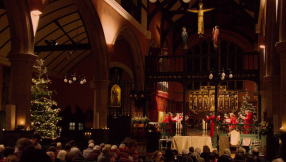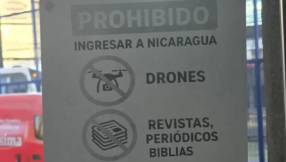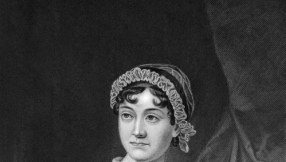Vatican defends duty to evangelise, accept converts
A document from the Vatican's doctrinal department also rejected charges from some quarters that spreading the faith and receiving converts amounted to proselytism, or seeking new members aggressively or through coercion.
The document comes after the Russian Orthodox Church accused Catholics of trying to poach souls in the former Soviet Union and as a growing number of Anglicans are converting to Catholicism following deep divisions in their own Church.
The 19-page "Note on Some Aspects of Evangelisation," was written by the Vatican's Congregation for the Doctrine of the Faith, which Pope Benedict headed until his election as pontiff in 2005.
Evangelisation, the document said, was "an inalienable right and duty, an expression of religious liberty ...", adding that the right to share one's own faith with others is not respected in some countries.
It said the note had been made necessary to contrast notions, including from some Catholic theologians, that attempts to convince others of the primacy of Catholicism was a limitation of their freedom.
"The incorporation of new members into the Church is not the expansion of a power group, but rather entrance into the network of friendship with Christ which connects heaven and earth, different continents and age. It is entrance into the gift of communion with Christ ...," the document said.
CONVERSIONS
Previous documents by the same doctrinal department have angered other Christians. Last July, one such document said Christian denominations outside Roman Catholicism were not full churches of Jesus Christ.
One section of Friday's document was dedicated to how Catholics should deal with conversions from other Christian churches.
It said that when other Christians asked to become Catholics "for reasons of conscience" and because they are "convinced of Catholic truth" this should be seen as a divinely inspired "expression of freedom of conscience and of religion."
In recent years a growing number of Anglicans, opposed to the ordination of women and gay bishops, have asked to convert to Catholicism. Three former bishops of the Episcopal Church, the United States wing of Anglicanism, have converted this year.
Former British Prime Minister Tony Blair is expected to convert to Catholicism soon.
The Vatican is working on a missionary "code of conduct" with Protestant, Anglican, Orthodox and evangelical leaders to help reduce tensions among Christians and with other faiths that have been caused by aggressive evangelisation drives.
Vigorous evangelisation by Pentecostal and evangelical missionaries in developing countries has angered Muslims and Hindus and led to arrests of missionaries and converts as well as anti-conversion laws in some countries.













